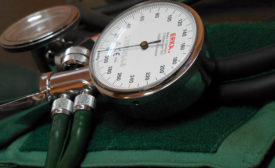Home » cardiovascular
Articles Tagged with ''cardiovascular''
AHA launches new initiative to reduce heart failure in U.S.
Rita Owens, supported by her daughter Queen Latifah, will share her story
September 30, 2015
Most Americans’ hearts are older than their age
That means higher risk of heart attacks and stroke
September 2, 2015
Never miss the latest news and trends driving the safety industry
eNewsletter | Website | eMagazine
JOIN TODAYCopyright ©2024. All Rights Reserved BNP Media.
Design, CMS, Hosting & Web Development :: ePublishing






